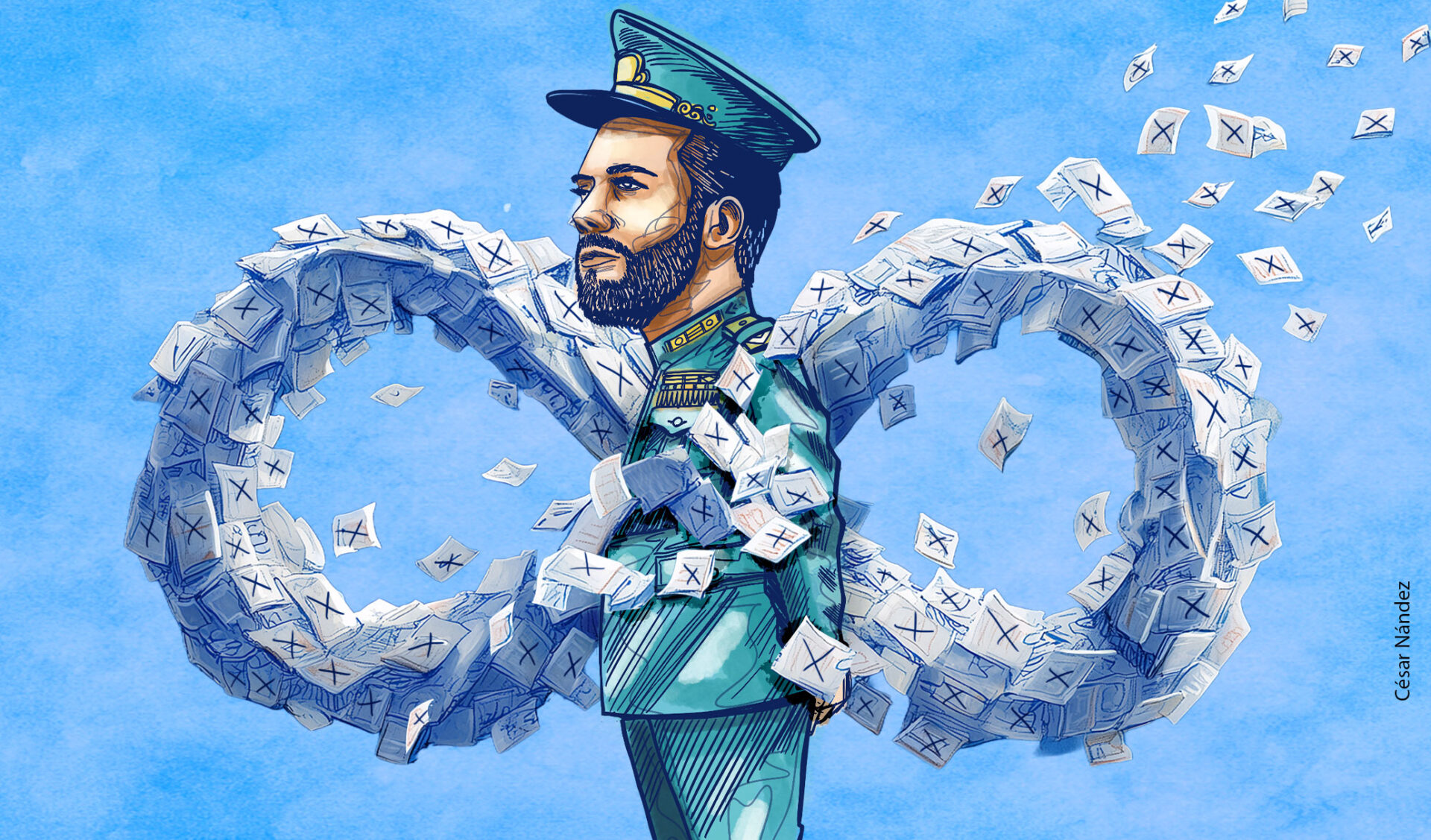In 2021, when Nayib Bukele updated his bio on X to read “The coolest dictator in the world,” he was flirting with a reality that had yet to fully unfold. But on July 31, 2025, the prophecy he once made on social media came true: with 57 votes in favor and just three against, the Legislative Assembly approved a constitutional amendment allowing Bukele to govern indefinitely.
Among both supporters and critics, this latest assault on democracy comes as little surprise. Bukele’s presidency has long borne the hallmarks of an aspiring despot: subordination of the judiciary to the executive, a shrinking and reconfigured legislature, and more recently, forcing journalists and dissidents into exile under the Foreign Agents Law. Still, few doubt that last Thursday’s vote marks the darkest chapter yet in El Salvador’s accelerating descent into authoritarian rule.
For now, the Salvadoran president appears untouchable. His radical security policy—despite serious human rights violations against both alleged and actual gang members—has transformed the former homicide capital of the world into one of the safest countries in the Western Hemisphere, winning him overwhelming support at home and abroad. He’s also been bolstered by a weak opposition, close ties to Trump and the so-called “new right,” and the conspicuous silence of Western leaders.
Yet, according to a survey by LPG Datos, only 1.4% of Salvadorans find it troubling that power is concentrated in a single person’s hands. Still, Bukele will face future hurdles in holding on to power. What happens when Bukele’s brand of “peace” becomes normalized? Or when the country is hit by an economic, social, or environmental crisis? It seems unlikely that the self-proclaimed dictator would willingly cede power or allow a new government to take over following an electoral defeat.
Democratic erosion
Last week’s constitutional reform, which removed term limits for the presidency, also extended the presidential term from five to six years, eliminated run-off elections, and brought forward the 2028 presidential election to 2027 to align it with legislative and municipal elections—an attempt to capitalize on Bukele’s electoral momentum. These are merely the latest blows to El Salvador’s already fragile democracy.
Just a year after his first presidential win in 2019, Bukele evoked memories of the civil war that plagued the 1980s. Flanked by heavily armed soldiers, he stormed into Congress to demand a $109 million loan for his “war” against gangs. In 2021, he went after the judiciary, purging the courts and replacing independent judges with loyalists from his party, Nuevas Ideas. But it was in 2022 that his presidency entered its defining phase with the declaration of a “state of exception,” which the Legislative Assembly has since renewed 41 times.
For decades, El Salvador was caught in the crossfire between the notorious Mara Salvatrucha (MS-13) and Barrio 18 gangs (both Sureños and Revolucionarios), which controlled nearly every aspect of daily life. Attacks on businesses were common, and brutal killings occurred frequently and with impunity. Many families stopped sending their children to school, as the journey often meant crossing gang-controlled territories. Nearly every aspect of social life was confined to one’s neighborhood or home.
Because Salvadoran gangs were not major players in international drug trafficking—unlike Mexican and Colombian cartels—violent extortion became their main source of income. In 2014, the Central Bank calculated that the cost of extortion in El Salvador equaled more than 3% of GDP; that same year, public spending on education was 3.8% of GDP.
Every administration before Bukele promised to take on the gangs, but all failed to end the bloodshed. Clearly, their “tough” approach wasn’t tough enough. These broken promises, made over and over by the two dominant parties—right-wing ARENA and leftist FMLN—only deepened public disillusionment and a sense of chaos.
Opposition missteps
Despite his rising popularity as mayor of Nuevo Cuscatlán under the FMLN—where he began his political career in 2012—Bukele’s relationship with his former party deteriorated. In October 2017, the FMLN finally expelled him for “defamatory actions,” following an incident in which he allegedly threw an apple at a party colleague. But the decision backfired: during the next year’s legislative and municipal elections, which Bukele had been poised to win, the FMLN suffered crushing defeats. In part, this was because a bitter Bukele had urged voters to spoil their ballots or stay home. With the FMLN stripped of its historic majority in the legislature, ARENA and the broader right were poised to take control.
The FMLN’s hostility toward Bukele has hurt it ever since he became president in 2019. His critics—both inside and outside the party—have largely focused their attacks on his security policies, a strategy that has failed for several reasons. First, mass incarceration of gang members is the bedrock of Bukele’s popularity. Attempts to discredit him over human rights abuses tied to the Territorial Control Plan don’t resonate with voters whose own rights were routinely violated by the same gangs that the opposition now appears to defend.
Second—and more importantly—security is just the visible tip of the “Bukelismo” iceberg. While his blatant disregard for the rights and freedoms of detainees (many imprisoned without trial in megaprison CECOT) deserves condemnation, the broader democratic backsliding—total institutional control, indefinite reelection, and an unprecedented concentration of power—is the more enduring threat to the future of this Central American nation.
A fleeting calm?
No one should be surprised by the popularity of a figure like Bukele in a country like El Salvador. After all, living without fear is a basic human right that Salvadorans were denied for far too long. Bukele’s ability to provide security where all his predecessors failed spectacularly explains not only his staggering popularity, but also the Salvadoran people’s willingness to discard their own democracy.
But the region is full of cautionary tales about what comes next. Although Bukele has gained support faster and more decisively than others, it’s worth remembering that there was a time when Ortega enjoyed broad support in Nicaragua—just as Chávez did in Venezuela. Like Bukele, those leaders promised to cure ailments long deemed incurable. But when their people no longer wanted the medicine, it was already too late.
For now, Bukele’s indefinite reelection is cloaked in his immense popularity. It lends him a veneer of democratic legitimacy, in the narrowest sense of the word. But someday—perhaps sooner than expected—the Salvadoran people may find themselves suffocated by the iron hand that once gave them “breath.”
*Machine translation, proofread by Ricardo Aceves.












